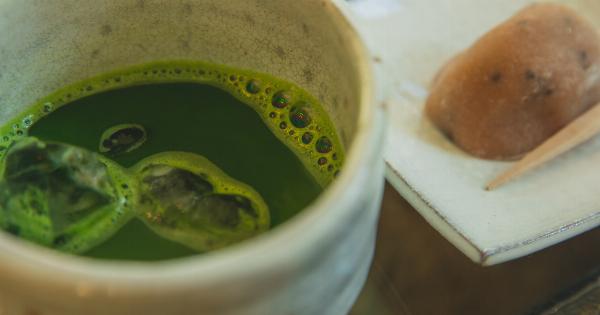Tea has been considered a healthy beverage with numerous benefits for centuries. It is known to be rich in antioxidants and has been lauded for its potential to improve heart health, aid in weight management, and even boost cognitive function.
However, recent research suggests that there may be some risks associated with drinking hot tea. While it may be enjoyable to sip on a steaming cup of tea, it is important to be aware of these potential dangers.
1. Increased Risk of Esophageal Cancer
One of the main concerns associated with drinking hot tea is its potential link to esophageal cancer.
Studies have found that consuming very hot beverages, such as tea at temperatures above 149°F (65°C), can increase the risk of developing esophageal cancer. The hot liquid may cause damage to the cells in the lining of the esophagus, leading to inflammation and potentially cancerous changes over time.
2. Risk of Thermal Injury
Drinking hot tea can also pose a risk of thermal injury or burns. The high temperature of the tea can scald the mouth, throat, and gastrointestinal tract if consumed too quickly or without caution.
Children and older adults are particularly vulnerable to thermal injuries, as their tissues may be more sensitive.
3. Digestive Issues
Some individuals may experience digestive issues after consuming hot tea. The heat of the beverage can irritate the digestive tract, leading to symptoms such as acid reflux, heartburn, and stomach ulcers.
People with pre-existing gastrointestinal conditions should be cautious when consuming hot tea and may want to opt for cooler temperature alternatives.
4. Tooth Damage
Hot tea may also contribute to tooth damage. The tannins present in tea can stain and erode tooth enamel, which can lead to tooth sensitivity, cavities, and discoloration.
Additionally, the heat of the tea can weaken teeth and make them more susceptible to cracks and fractures, especially if consumed too hot or too quickly.
5. Interference with Iron Absorption
Drinking hot tea with meals can interfere with the body’s ability to absorb iron from food. Tea contains compounds called tannins which can bind to iron and prevent its absorption in the digestive system.
This can be particularly concerning for individuals with iron-deficiency anemia or those who rely on iron-containing foods to meet their nutritional needs.
6. Dehydration
While tea is mainly composed of water, drinking it at high temperatures can actually contribute to dehydration. The heat of the tea causes increased perspiration and can also stimulate the kidneys to produce more urine, resulting in fluid loss.
It is important to balance tea consumption with an adequate intake of water to prevent dehydration.
7. Increased Risk of Gastroesophageal Reflux Disease (GERD)
For individuals with gastroesophageal reflux disease (GERD), drinking hot tea can exacerbate symptoms. The heat can aggravate the stomach lining and increase acid production, leading to acid reflux and heartburn.
It is recommended that individuals with GERD avoid consuming hot tea and opt for cooler alternatives instead.
8. Risk of Insomnia
The caffeine content in tea can interfere with sleep patterns and contribute to insomnia, especially when consumed in large quantities or later in the day.
While the temperature of the tea itself may not directly cause insomnia, the combination of hot tea and caffeine can disrupt sleep quality and duration, leading to daytime drowsiness and other related issues.
9. Oral and Throat Cancer Risk
In addition to esophageal cancer, there is some evidence to suggest that drinking hot tea may also be associated with an increased risk of oral and throat cancers.
The high temperature of the tea can cause repeated irritation and inflammation in the mouth and throat, potentially leading to the development of cancerous cells over time.
10. Impact on Pregnancy
Pregnant women should exercise caution when consuming hot tea. High temperatures can elevate body temperature, which carries risks for the developing fetus.
Additionally, excessive caffeine consumption from hot tea can lead to complications such as low birth weight and preterm labor. It is advisable for pregnant women to consult with their healthcare providers about safe tea consumption during pregnancy.






























